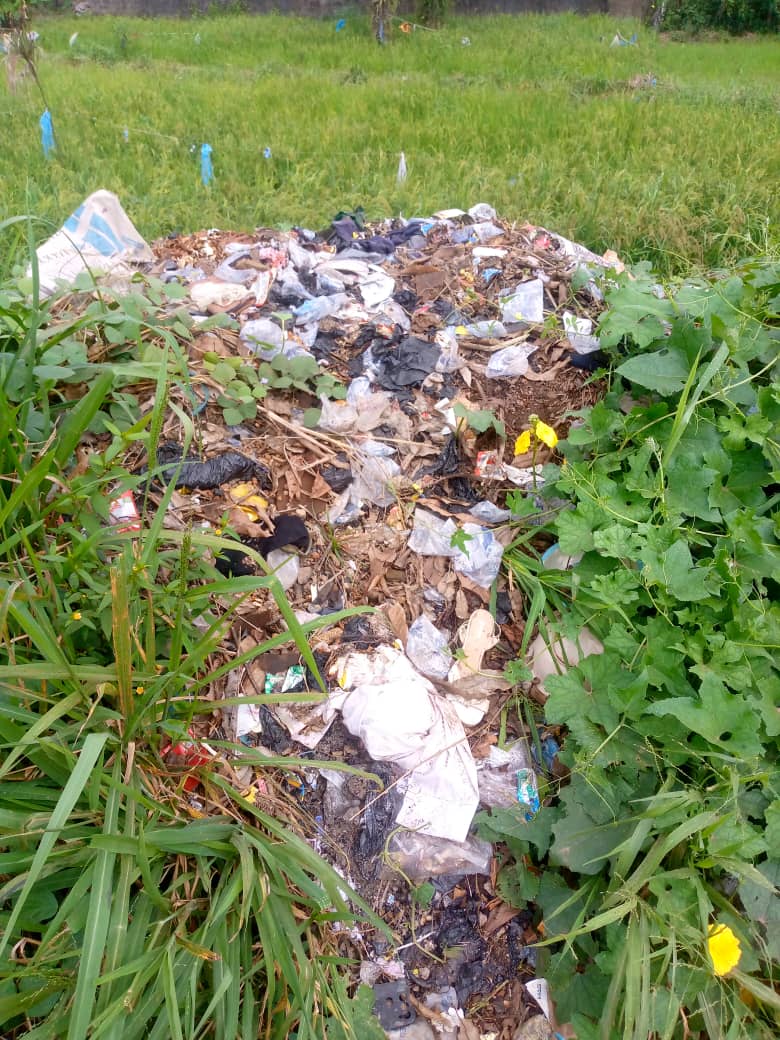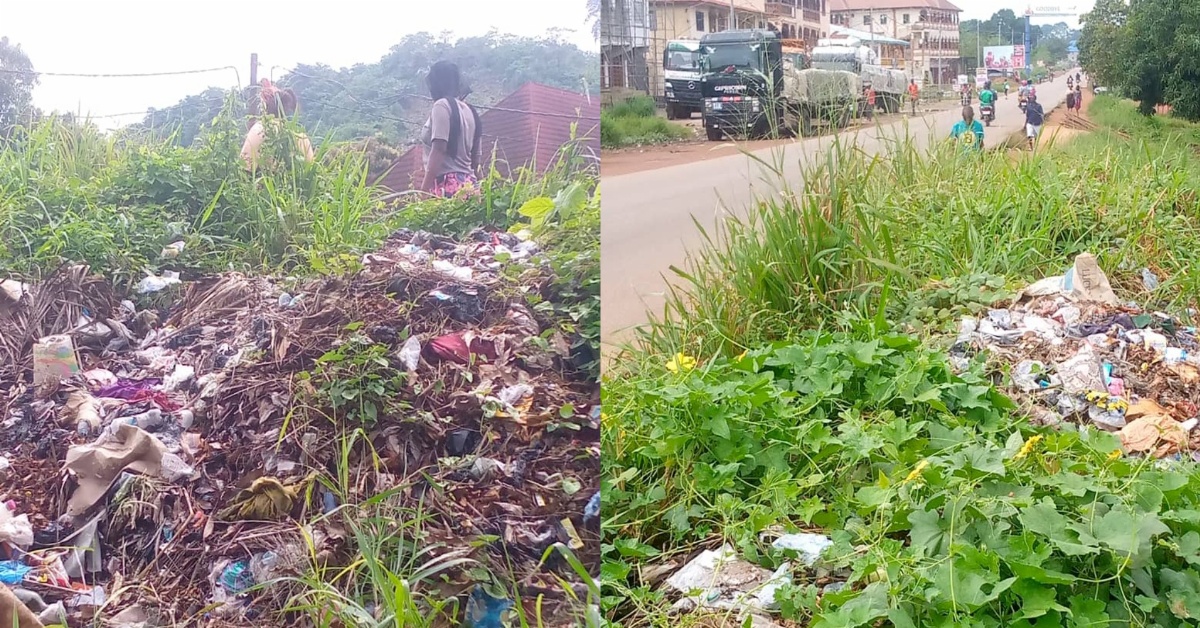In many parts of the world, improper disposal of waste presents a significant challenge to a city’s capacity to manage its exposure to flooding and further contributes to the outbreak of infectious diseases.
Sierra Leone is not a stranger to this malaise as even the capital, Freetown is struggling to keep its waste in a safe location as to not affect the health of locals residing there. But population surge in and around dumpsites like the one in Kissy is exposing hundreds if not thousand of people to diseases that affect their intestines and lungs.
Sadly, this problem has spiralled out of the capital as there is a growing number of plastic manufacturing companies in the country and with a weak recycling system, experts warn for the worst in the future.
In Makeni, northern Sierra Leone, the inappropriate discarding of waste has become a common practice, increasing serious environmental and public health threat.
The indiscriminate dumping of waste, including household trash, medical waste and plastic bags, has been linked to the spread of diseases like Malaria and Cholera in Makeni.
Residents of Makeni-Lunsar Highway said they had reported that the frequent improper dumping of waste has attracted mosquitoes, increasing the risk of malaria.
Like other places in the city, Makeni-Lunsar Highway, an action-packed and a great transition road, has become a hub for waste disposal.

Business people who hawk their wares on the road complain about the toxic emissions released by the hazardous materials in the waste
“We take our wares to the market using this road. Most times flies from this dumb site perch on our wares if not properly covered. This affects us and our customers,” Haja Sankoh said.
“The government and local communities should tackle the problem before its spirals further out of control,” a passerby, who chose to remain anonymous, said.












Well, whilst the ussue of improper waste disposal is a challenge, yet it is good to capture what is true and don’t assume. The writer will agree with me that there has been no reported cases of cholera in Makeni recently. Also, Makeni is home to several swamps in the township which could be a breeding ground for mosquitoes. So to attribute malaria, typhoid and worse still cholera to indiscriminate waste disposal can be contested.